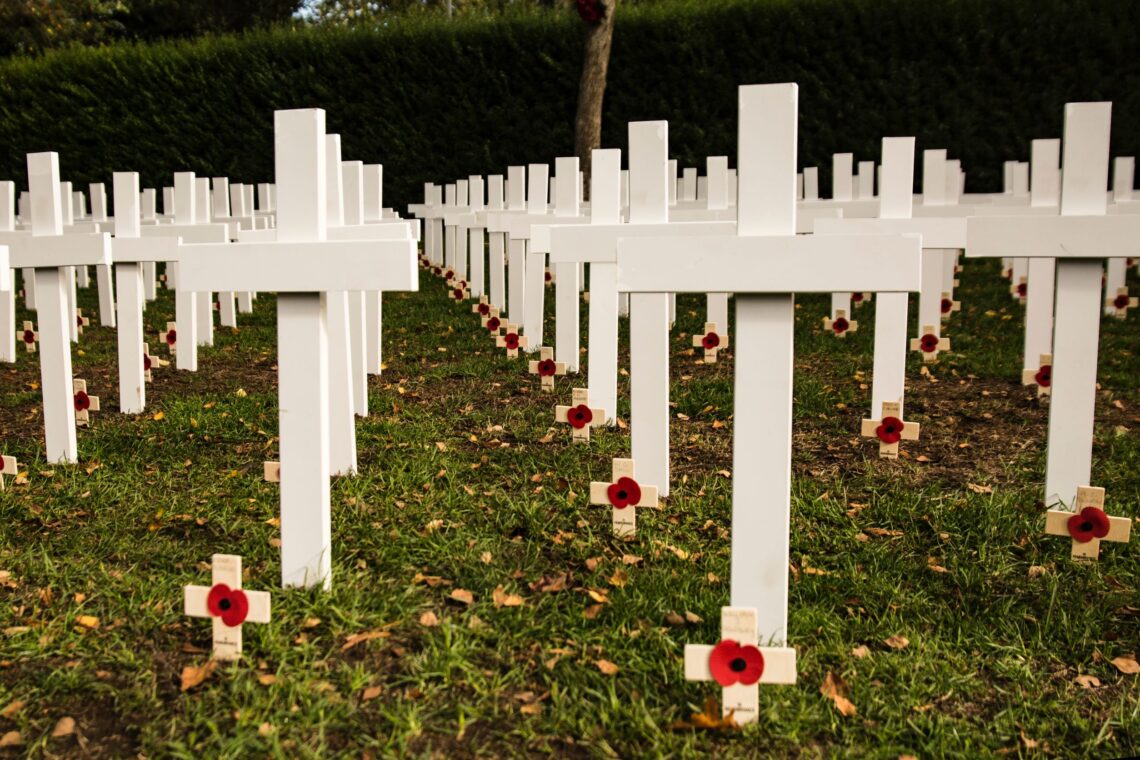
Heading to a Cease-Fire in Ukraine?
There was an interesting article in the opinion section of the New York Times a couple of days ago. It was by Sergey Radchenko, who is an historian of the Cold War. It was entitled: This War May Be Heading Toward a Cease-Fire.
He opens his op-ed with this paragraph:
“After a year of brutal fighting, in which thousands of lives have been lost, civilian infrastructure destroyed and untold damage caused, the war has reached a stalemate. Neither side will countenance a negotiated settlement. On the battlefield, battered armies contest small strips of territory, at a terrible cost. The threat of nuclear escalation hangs in the air.”
He then puts the above quote in context:
“This isn’t Ukraine today; it’s the Korean Peninsula in 1951. No two wars are exactly alike, of course. But in the long history of carnage, one war stands out for its relevance to the current blood bath in Ukraine: the war in Korea from 1950-53 . . . “
Very Brief Synopsis of the Korean War
Radchenko then gives a brief history of the Korean Conflict, which I will make even briefer here for those not familiar with the conflict, and/or for those who could use a little refresher.
In June of 1950, the North Koreans, at the behest of the Joseph Stalin and the Soviet Union, crossed the 38th parallel and invaded South Korea. The North Koreans drove south and quickly captured Seoul, the capital of South Korea, leading people to think this war could be short-lived.
But then, under United Nations auspices, United States intervened, creating havoc for the North Korean forces, turning the tide of the war.
Sensing victory, Gen. Douglas MacArthur, commander of the UN forces, made the fateful decision in September of 1950 to push the war into North Korea. Stalin, watching this, urged the Chinese to intervene on behalf of North Korea, which they did in late October, 1950, again turning the tide of the war as it entered a new bloody phase.
Initially, the Chinese were able to push the United Nations forces south of the 38th parallel, and even managed to recapture Seoul.
The Stalemate in the Korean War
However, the Chinese could not sustain the momentum. Their supply lines were too long and American bombing took its toll, so by May, 1951 the war had stalled. Radchenko describes what came next:
“It was clear by the summer of 1951 that the war was not going anywhere, yet it took two more years — punctuated by a lethal artillery barrage across the line of control and intermittent fighting — before the fighting was brought to an end. In the interim, tens of thousands were killed, and widespread U.S. bombing of North Korea’s hydroelectric dams led to complete blackouts in the North.”
So for two years both North and South Korea refused to compromise. The result was tens of thousands more people killed and massive destruction from US bombing.
Is a Similar Stalemate Brewing in Ukraine?
Radchenko thinks a similar stalemate may soon occur in Ukraine, though he admits that we won’t know for sure until we see how the war plays out over next few months. There is the Russian offensive, supposedly underway now, and a potential Ukrainian Spring offensive planned. So, now, like with the Korean War, neither side wants a cease-fire, each hoping to reclaim more territory, leading them to an eventual victory.
However, if after both countries attempts to expand their reach fails to change much in Ukraine, then perhaps a stalemate of the Korean type will take hold. The question then becomes how many more deaths and how much more destruction must occur before the two sides finally exhaust themselves, and agree to a cease-fire based roughly on the areas they are now holding?
An Extended Stalemate Calls for a Cease-Fire
I know the idea of a cease-fire with Russia rankles many people in the west. People rightfully ask, “How can we give Putin anything for his illegal invasion of Ukraine? What kind of a precedent will that set?” That conveniently forgets the illegal United States invasion of Iraq in 2003; a reminder that can give us a little perspective as we think about this conflict.
Sure it’s terrible to reward Putin for this blatant aggressive act, but we have to also look at the big picture. As Radchenko points out:
“Xi Jinping probably does not want to see this war drag on indefinitely. He would surely be very happy with a cease-fire. That may in fact be the preferred solution in other quarters — certainly in the global south, which sees nothing to gain from the conflict, and among many constituencies in the West. The parties most clearly opposed to the idea are those who are fighting it out on the ground: the Russians and the Ukrainians. For Ukraine, repelling an invading force that lays claim to almost one-quarter of its territory, such a position is understandable.”
Everybody Has to Compromise Something
While admitting having Ukraine give up a quarter of their territory is repugnant, Radchenko adds,
“Yet if neither side makes significant gains in coming months, the conflict could well be heading for a cease-fire. The Ukrainians, though perhaps not fully recovering their territories, will have fended off an aggressive foe. The Russians, for their part, can disguise their strategic defeat as a tactical victory. The conflict will be frozen, a far-from-ideal result. Yet if we have learned anything from the Korean War, it is that a frozen conflict is better than either an outright defeat or an exhausting war of attrition.”
The Korean Armistice Has Held for 70 years
Initially, nobody thought the Korean armistice agreement, using the 38th parallel as the dividing line between North and South Korea would hold, yet it has for 70 years. While the goal of the West was to overthrow Kim Il-sung, his family remains in power in North Korea today.
Radchenko concludes his article with this comment:
“Today, the glittering metropolis of Seoul — savaged by the Korean War — stands as a reminder that it is not those who win the war who matter, but those who win the peace.”
I decided to write about this op-ed because I thought it gave a different perspective than what we normally get in the coverage of this war. It also gives us something to watch for over the next several months. Will the situation change significantly? Will Ukraine be able to push Russia out of its country or will it hit a stalemate as occurred in Korea? If it is a stalemate, then it might be time to re-think a cease-fire in order to save tens of thousands lives and end the massive destruction.
To learn more about the magic of the universe: Click this link: The Magical Universe.




